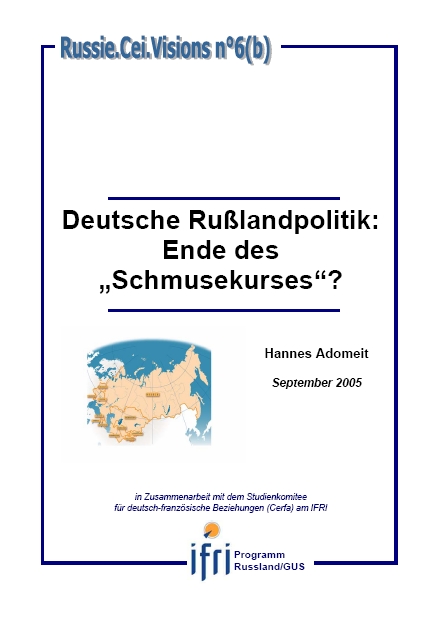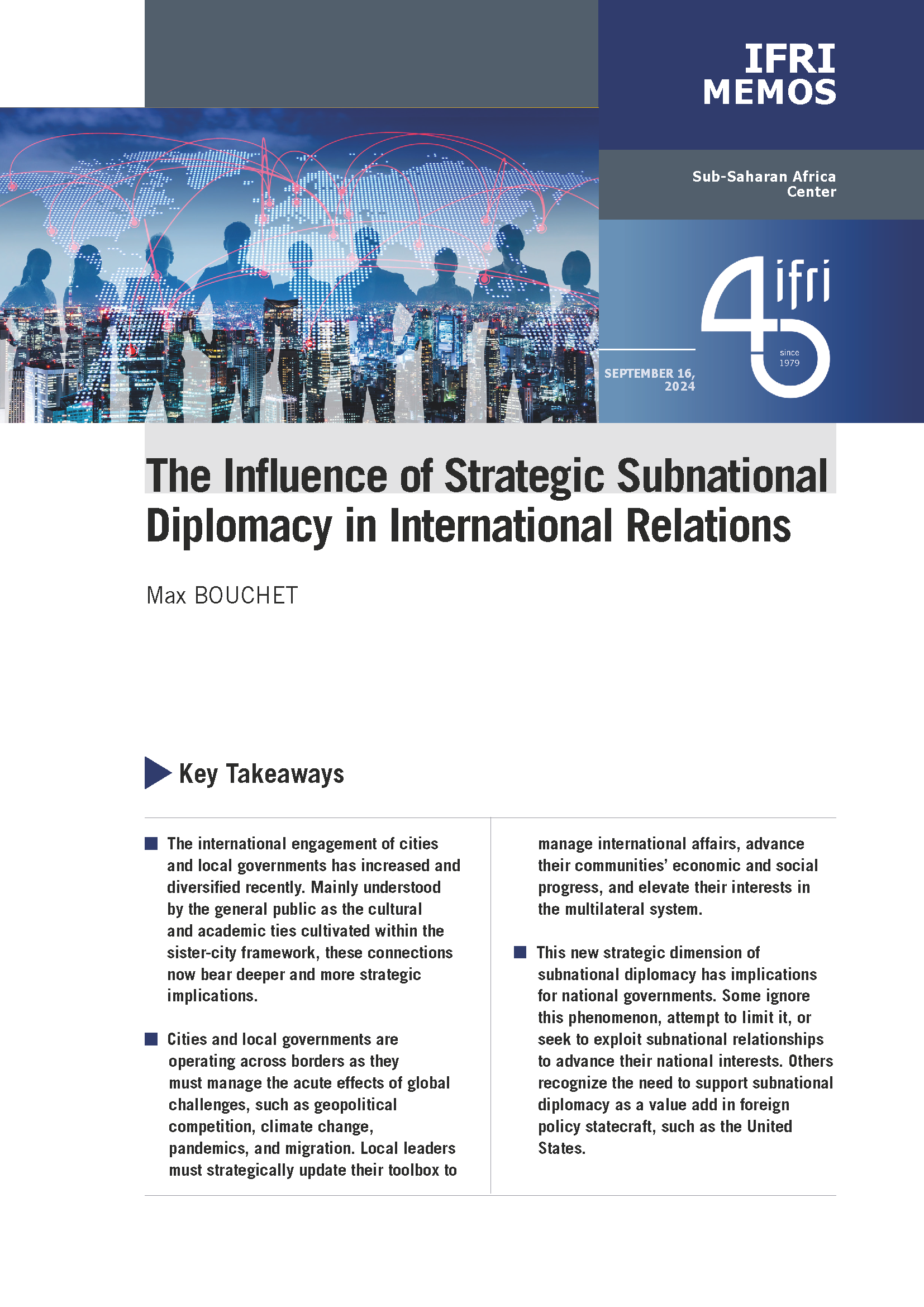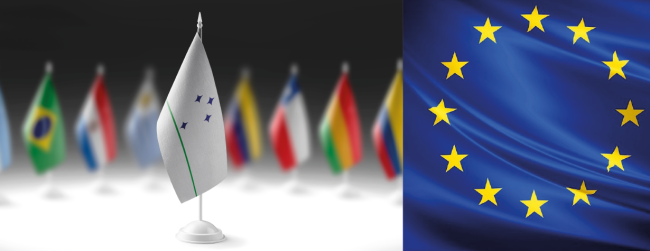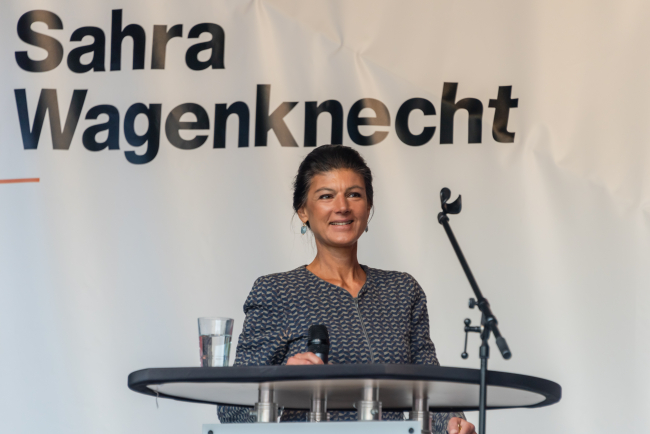Deutsche Rußlandpolitik: Ende des „Schmusekurses

Doppelte Note du Cerfa, 26 (a) und 26 (b), September 2005, in Kooperation mit dem Programm Russland/GUS
Note du Cerfa, n° 26 (a), septembre 2005 Hannes Adomeit, "Deutsche Rußlandpolitik: Ende des „Schmusekurses?"
Note du Cerfa, n° 26 (b), septembre 2005 Andreï Zagorski, "Russland und Deutschland: Kontinuität und Wandel"
Die Entwicklungen in Putins Russland weg von Democratie und Rechtsstaat haben auch die deutsche Russlandpolitik auf den Prüfstand gestellt. So haben Repräsentanten der Oppositionsparteien CDU/SCU und FDP im Vorfelf der Wahl zum Deutschen Bundestag am 18. September zu arkennen gegeben, dass sie die von Bundeskanzler Schröder gegenüber Russland eingenommene Haltung für verfehlt halten. In den neuen EU-Mitgliedstaaten Ostmitteleuropas wird Deutschland vorgeworfen, es schlage abweichend von der EU einen Sonderweg ein, es strebe ein Sonderverhältnis zu Russlan an. Der vorliegende Artikel geht der Frage nach, ob diese Kritik zutreffend ist und was hinter der von Bundeskanzler Schröder und Präsident Putin immer wieder beschworenen "strategischen Partnerschaft" steckt.
Hannes Adomeit is seit 1997 wissenschaftlicher Mitarbeiter und Fachmann für Russlandfragen am Forschungsinstutut für Internationale Politik und Sicherheit der SWP in Berlin.
Download the full analysis
This page contains only a summary of our work. If you would like to have access to all the information from our research on the subject, you can download the full version in PDF format.
Deutsche Rußlandpolitik: Ende des „Schmusekurses
Related centers and programs
Discover our other research centers and programsFind out more
Discover all our analyses
Ensuring a Fair Green Transition
“Humanity has opened the gates of hell”, stated UN Secretary-General António Guterres at the Climate Ambition Summit in September 2023, emphasising that we are currently on a path of global warming above 2.4°C or even 2.9°C.
Between „Strategic Autonomy” and „Zeitenwende”: The Importance of Trade Between The EU and Mercosur
This policy paper analyses the geopolitical and economic significance of the EU-Mercosur agreement for the European Union (EU) in the context of the EU’s new European Economic Security Strategy.
Neither Left nor Right, but Both? The Sahra Wagenknecht Alliance (BSW) in the Wake of European Elections
The 2024 European elections not only provided the occasion for a new German party, the “Bündnis Sahra Wagenknecht” (BSW), to emerge but also to obtain 6.2% of the vote.

France's Partner on a Pedestal: A View Driven by Pragmatism and Envy
This paper brings together contributions from a cross-section of EU member states and the Gallup World Poll survey on the question of how Germany is being viewed at this time of economic and political crisis.









